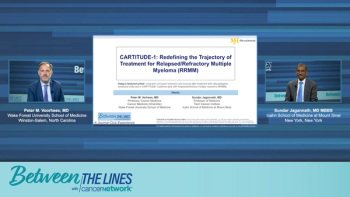
Panelists discuss how long-term CARTITUDE-1 data may change clinical practice by validating earlier use of ciltacabtagene autoleucel (cilta-cel) and informing personalized treatment strategies based on risk and disease biology.

Your AI-Trained Oncology Knowledge Connection!


Panelists discuss how long-term CARTITUDE-1 data may change clinical practice by validating earlier use of ciltacabtagene autoleucel (cilta-cel) and informing personalized treatment strategies based on risk and disease biology.

Panelists discuss how the durability of response and long-term minimal residual disease (MRD) negativity in a subset of patients supports redefining treatment end points and cure in multiple myeloma.

Panelists discuss how extended follow-up from CARTITUDE-1 shows continued overall survival benefit with minimal new safety concerns, reinforcing the durability and safety of cell therapy.

Panelists discuss how some patients in CARTITUDE-1 maintained stringent complete remission for more than 5 years without further treatment, potentially redefining the concept of cure in myeloma.

Panelists discuss how the 5-year data from CARTITUDE-1 demonstrate that a substantial subset of patients achieved long-term remission, suggesting a potential shift toward curative therapy.

Panelists discuss how safety outcomes from CARTITUDE-1 revealed that most adverse effects, including cytokine release syndrome (CRS) and neurotoxicity, were manageable and reversible, even in advanced-stage patients.

Panelists discuss how the efficacy outcomes from CARTITUDE-1, including a substantial progression-free survival (PFS) benefit, highlight the transformative impact of deep, sustained minimal residual disease (MRD)-negative responses.

Panelists discuss how CARTITUDE-1 addressed an unmet need by targeting late-line, refractory myeloma patients with a fixed dose of chimeric antigen receptor (CAR) T-cell therapy for potential accelerated approval.

Panelists discuss how the baseline characteristics of CARTITUDE-1 participants underscore the trial’s focus on patients with heavily pretreated and refractory disease.

Panelists discuss how the CARTITUDE-1 trial was designed to evaluate cell therapy in relapsed/refractory multiple myeloma and the importance of long-term follow-up in understanding efficacy and safety.

Panelists discuss how the evolution of FDA approvals for multiple myeloma therapies reflects rapid innovation and increasing effectiveness, particularly with cell-based treatments.

Panelists discuss how advancements in treatment options, including chimeric antigen receptor (CAR) T-cell therapy, bispecific antibodies, and antibody-drug conjugates, are shaping the current multiple myeloma landscape.
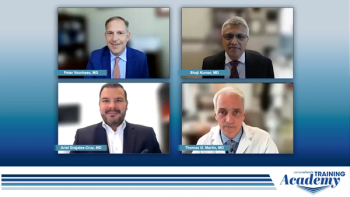
Experts on multiple myeloma outline current challenges in determining the optimal treatment strategy for patients with relapsed/refractory disease who are eligible for bispecifics and CAR T-cell therapy.

The panel concludes its discussion with key takeaways on unmet needs and evolving treatment paradigms in relapsed/refractory multiple myeloma.

Experts on multiple myeloma outline current challenges in determining the optimal treatment strategy for patients with relapsed/refractory disease who are eligible for bispecifics and CAR T-cell therapy.

Shaji Kumar, MD, reviews data from cohort C of CARTITUDE-2 and a real-world study evaluating ide-cel in patients with relapsed/refractory multiple myeloma.

Following the presentation of a case of a patient with relapsed/refractory multiple myeloma, the expert panel reviews treatment options.

Shaji Kumar, MD, reviews data from cohort C of CARTITUDE-2 and a real-world study evaluating ide-cel in patients with relapsed/refractory multiple myeloma.

The panel discusses how they approach treatment selection and sequencing for patients with relapsed/refractory multiple myeloma.

Shaji Kumar, MD, presents the case of a 70-year-old patient with relapsed/refractory multiple myeloma who received CAR T-cell therapy.

Thomas G. Martin, MD, reviews findings from a pooled analysis from MagnetisMM that evaluated elranatamab in patients with relapsed/refractory MM who received prior BCMA-directed therapies.

Focusing on treatment paradigms for patients with relapsed/refractory multiple myeloma, the expert panel discusses the role of BCMA-targeted bispecifics and how they might consider sequencing therapies.

Following the presentation of a case of a patient with multiple myeloma, the panel have a roundtable discussion on how to approach treatment.

A panel of myeloma specialists review the case of a 67-year-old patient with multiple myeloma (MM) who received a bispecific antibody.
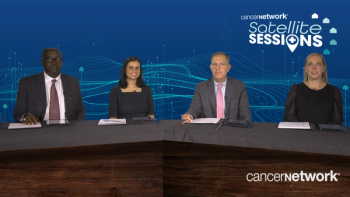
Concluding their comprehensive discussion on treating patients with multiple myeloma, the expert panel discusses unmet needs and looks to the future of treatment.

The panel presents the case of a 68-year-old man with multiple myeloma and offers their initial impressions.

Shared insights on the patient profile of a 75-year-old woman with multiple myeloma with confirmed lytic disease.

The expert panel presents the patient case of a 70-year-old man with multiple myeloma and discusses treatment decisions.

An overview of the RedirecTT-1 study investigating teclistamab plus talquetamab in patients with relapsed/refractory multiple myeloma.

Continuing discussion on bispecific antibodies, attention turns to talquetamab and the MonumenTAL-1 clinical trial for patients with relapsed/refractory multiple myeloma.
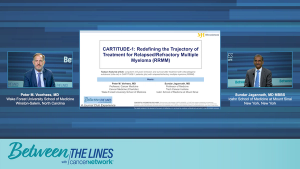
Published: July 11th 2025 | Updated:
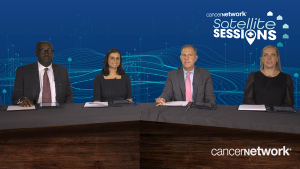
Published: September 13th 2023 | Updated:

Published: September 20th 2023 | Updated:

Published: September 13th 2023 | Updated:

Published: September 20th 2023 | Updated:
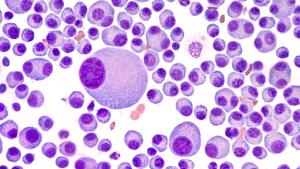
Published: December 23rd 2020 | Updated: